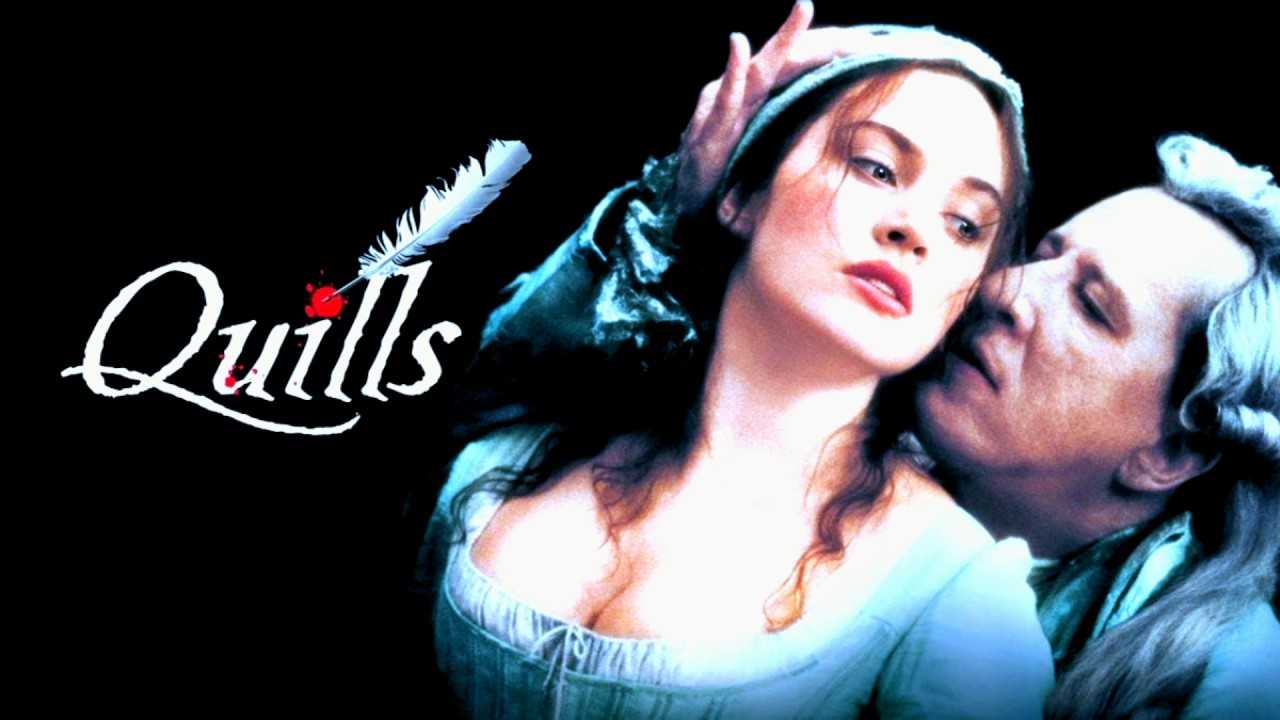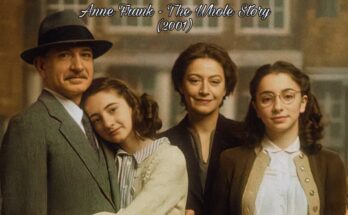Quills, directed by Philip Kaufman and based on Doug Wright’s Obie Award-winning play, is a provocative and visually striking period drama that examines the tension between creative freedom, sexual passion, and societal repression. Set in late 18th-century France, during a time of intense political and moral upheaval, the film offers a daring exploration of the limits of free expression through the life of one of history’s most controversial figures: the Marquis de Sade.
Played with ferocious energy by Geoffrey Rush, the Marquis is portrayed as a brilliant yet deeply flawed man, whose unfiltered imagination and refusal to be censored make him a symbol of creative defiance. Confined to the Charenton Asylum, de Sade continues to write his scandalous stories with the help of Madeleine (Kate Winslet), a young laundress who smuggles his manuscripts to the outside world. Madeleine is both fascinated and disturbed by the Marquis’s wild tales, finding herself caught between her own awakening desires and the rigid morality imposed by society.
The film’s emotional core revolves around the complex, layered relationships between the Marquis, Madeleine, and the asylum’s new overseer, Dr. Royer-Collard (Joaquin Phoenix). Dr. Royer-Collard arrives determined to silence de Sade, believing that art and freedom must be tightly controlled to preserve moral order. His methods, however, grow increasingly brutal, revealing his own hypocrisies and hidden perversions.
As tensions escalate, Quills deftly blurs the lines between sanity and madness, virtue and vice, art and obscenity. The story raises profound questions: Should artistic expression ever be censored? Where is the line between protecting society and oppressing individuality? And at what cost do we sacrifice freedom in the name of decency?
Geoffrey Rush delivers a mesmerizing performance as the Marquis, bringing to life his wit, arrogance, and unyielding spirit. Kate Winslet’s portrayal of Madeleine captures innocence tinged with curiosity, while Joaquin Phoenix offers a nuanced performance as a man torn between duty and compassion, increasingly disillusioned by the system he serves.
Visually, Quills is lush and atmospheric, with rich period details and a hauntingly beautiful score by Stephen Warbeck. The film’s aesthetic contrasts the grandeur of 18th-century France with the grim confines of the asylum, emphasizing the tension between outward respectability and the darker impulses beneath.
Rather than glorifying or vilifying the Marquis de Sade, Quills paints a complex portrait of a man who refuses to be silenced, no matter the cost. It challenges viewers to consider the power of words and the dangerous allure of unchecked authority. The film’s ending is both tragic and thought-provoking, leaving audiences to wrestle with its unsettling themes long after the credits roll.
In conclusion, Quills is a bold, intelligent film that embraces the uncomfortable questions surrounding censorship, morality, and human nature. With outstanding performances, stunning visuals, and a provocative script, it remains a significant work that dares to explore the fine line between artistic brilliance and societal transgression.



